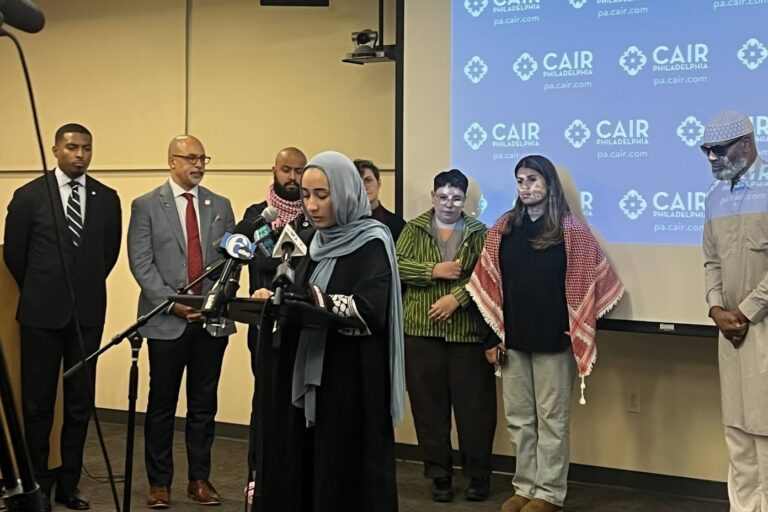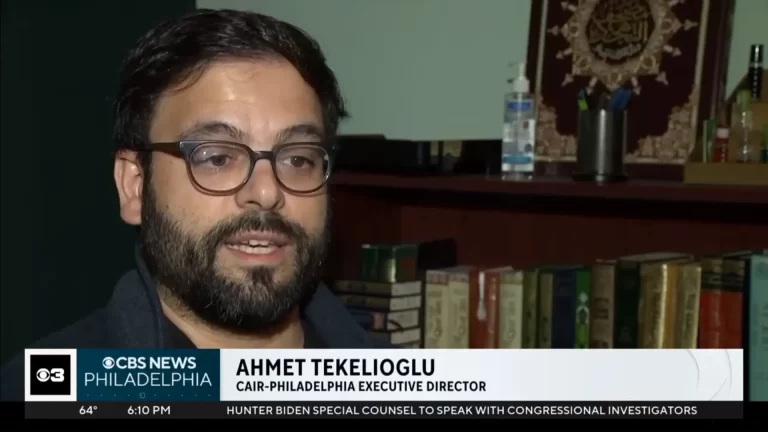![]()
American-Islamic relations organization works to change perceptions of Islam and its followers
Thursday, March 17, 2011
by Chanel Hill, Tribune Correspondent
The Philadelphia Tribune
“The American Muslim community has been through many challenges over the last couple of years and has persevered,” said Osama Al-Qasem, president of the Council on American-Islamic Relations Philadelphia Chapter. “It is crucial that we do not waver but remain confident, empowered and resolute in continuing the push for a more just, equitable and tolerant America.”
The Council on American-Islamic Relations Philadelphia Chapter (CAIR) held its fifth annual banquet last Saturday at the Springfield Country Club. The theme was “Advancing with Confidence.” The banquet included various speakers from CAIR, an award ceremony, and entertainment from David Lucas.
Established in 1994, CAIR is a non-profit grassroots civil rights and advocacy group. CAIR is among America’s largest Islamic civil liberties group, with regional offices nationwide. CAIR’s mission is to enhance understanding of Islam, encourage dialogue, protect civil liberties, empower American Muslims and build coalitions that promote justice and mutual understanding.
“CAIR Philadelphia Outreach efforts are so important because it opens the lines of communications and dialogue, whether it is through interfaith, education, media relations, or the Muslim Youth Leadership Program,” said Rugiatu Conteh, Outreach and Communications director of CAIR Philadelphia. “Interfaith involvement and education are key to changing negative stereotypes and protection of Muslims. Our overall goal is to educate and to establish relationships built on mutual respect and common values.
“Television continues to be one of the many sources for news in America. The public is bombarded with images of violence and oppression. We at CAIR Philadelphia make it our duty to monitor local and national media. It’s not about criticizing the media, but it is the principal of holding media institutions accountable for providing accurate and balance information to the public.”
High school student Giorne Manson is one person who decided to speak out against inaccurate information about Islam. A public high school teacher at her school had been teaching first-year high school students that Islam is inherently violent and that the Shariah law prescribes barbaric punishments. After Mason told her father about the incident, he called CAIR.
Since filing a complaint with the help of CAIR, the school district has agreed to mandatory sensitivity and religious training for all teachers and all students in the school, with a special emphasis on Islam and Muslims. Both Manson and her father received the Courage for Civil Rights award at the banquet.
“Maintaining a democracy is holding our government accountable for civil rights,” said Moein Khawaja, executive director of CAIR Philadelphia. “Freedom of speech is not just a right, but a responsibility to speak up when you see something wrong. Through struggle and advocacy come a positive contribution.
“When something bad happens it’s an opportunity to speak and make a positive contribution. Both Giorne and her father, George, made a positive contribution by speaking up for something they believed in and by protecting their rights.”
Senior cultural writer for the Philadelphia Inquirer, Stephen Salisbury, received the Courage of Journalism award. Salisbury wrote the book “Mohamed’s Ghosts: An American Story of Love and Fear in the Homeland.” Islamic activist Dr. Ribhi Shawar received the Lifetime Service award. Shawar played a key role as a founding member of CAIR-Seattle. He is now a board member of CAIR-Philadelphia.
Umar Faruq Abd-Allah was the keynote speaker. Allah now teaches and lectures in and around Chicago and various parts of the United States and Canada, while conducting research and writing in Islamic studies and related fields.
“Our struggle is an extremely important struggle,” Abd-Allah said. “It is very important for us to understand that it’s not just for us, but it is for everybody. Democracy in the United States today is in crisis. In no period in American history has the possibility of losing our freedom [been] as real as it is now.”





